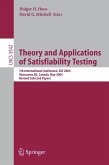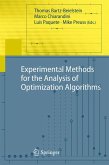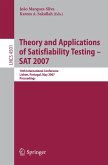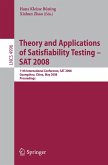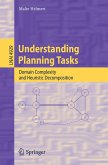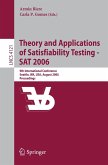After giving a general introduction to AI planning, the book describes and carefully evaluates the algorithmic techniques used in fast-forward planning systems (FF), demonstrating their excellent performance in many wellknown benchmark domains. In advance, an original and detailed investigation identifies the main patterns of structure which cause the performance of FF, categorizing planning domains in a taxonomy of different classes with respect to their aptitude for being solved by heuristic approaches, such as FF. As shown, the majority of the planning benchmark domains lie in classes which are easy to solve.
Dieser Download kann aus rechtlichen Gründen nur mit Rechnungsadresse in A, B, BG, CY, CZ, D, DK, EW, E, FIN, F, GR, HR, H, IRL, I, LT, L, LR, M, NL, PL, P, R, S, SLO, SK ausgeliefert werden.



